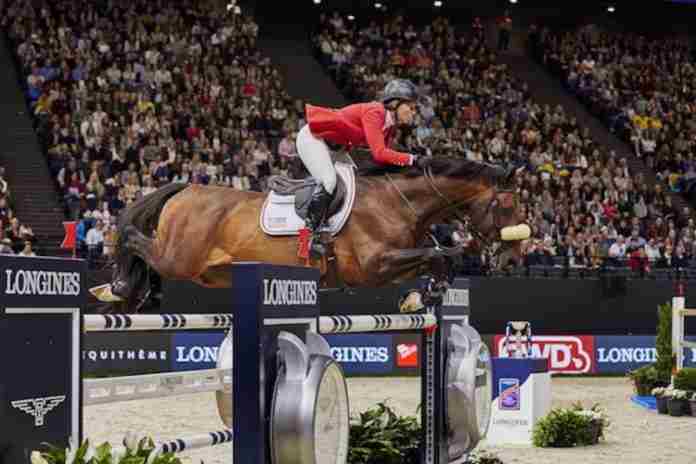 The latest turn in the saga of the International Boxing Association came last Thursday when the Secretary General of the Russian Boxing Federation, Umar Kremlev, offered to pay more than $16 million to clear AIBA’s debts, on the condition that the sport be retained in the 2020 Olympic Games in Tokyo.
The latest turn in the saga of the International Boxing Association came last Thursday when the Secretary General of the Russian Boxing Federation, Umar Kremlev, offered to pay more than $16 million to clear AIBA’s debts, on the condition that the sport be retained in the 2020 Olympic Games in Tokyo.
It was only the latest example of expanding Russian involvement in the business of the international sports federations.
Kremlev’s offer was made in a letter to International Olympic Committee chief Thomas Bach (GER) and the IOC membership, including:
“And for the sake of the future of boxing, I am ready to close all the debts of AIBA in full, so long as our favorite sport remains in the Olympic program. I decided to close the AIBA debts in full, and also allocate money for the development of the organization. I would like to do this for boxing to remain in the Olympic movement and that financial problems are no longer one of the reasons why the future of boxing would be under threat.”
So his offer is for more than $16 million, gleefully accepted by AIBA, which posted a statement that “AIBA moved one step closer to solving one hundred per cent of the issues, stated by the IOC as critical. Having satisfactory resolved its anti-doping, governance and referee and judging concerns, AIBA is now close to completing its financial challenges.”
No, not quite. But more on that later.
What is noteworthy is the expanding Russian interest, involvement and support of international sports federations. And Kremlev’s offer to AIBA is at least the second federation to be financially underwritten by a Russian benefactor.
Fencing is the first.
The Federation Internationale de Escrime – FIE for short – has received about $55 million in donations from its president since 2008, Russian Alisher Usmanov.
A billionaire with interests in mining and technology, Usmanov has kept the FIE from going under financially with multi-million dollar gifts annually. For 2017, the FIE financial statements reported a surplus of $1.64 million, after Usmanov’s donation of $4.95 million (1 CHF=$1 U.S.). In 2016, the FIE had a surplus of $4.36 million thanks to Usmanov’s donation of $4.85 million.
By all accounts, this isn’t a big expenditure for Usmanov, but it is worth asking whether fencing could actually support itself in his absence. As Bach himself was a fencer – in Foil, while Usmanov was a Sabre specialist – it’s not likely that much criticism of this arrangement will come from Lausanne.
But it is troubling. And there are other federations where Russia has gotten involved, but to its detriment:
● Athletics
The sordid story of the Lamine Diack Era in the IAAF may fully come to light in the coming months if the French authorities finally begin a trial of the Senegalese former IAAF President, who has been under house arrest in France since late 2015.
Among other allegations, Diack is accused to extorting money from Russian athletes who had positive doping tests and promising to have the results covered up. In December 2014, Valentin Balakhnichev, then the head of the Russian Athletics Federation and the treasurer of the IAAF, resigned over the scandal. The British newspaper The Telegraph reported:
“Balakhnichev last week dismissed as ‘a pack of lies’ a [ARD Germany] documentary alleging systematic doping and corruption within Russia sport and linking him with it.
“Also among the whistleblowers in the programme was former London Marathon winner Liliya Shobukhova, who was banned for two years in April and stripped of her hat-trick of Chicago Marathon wins between 2009-11.
“She alleged she was extorted of €450,000 (£350,000) to allow her to compete at London 2012.
“It was claimed Balakhnichev was aware of the payment, two-thirds of which was refunded to Shobukhova when she eventually failed a drugs test.”
The Russian Federation was suspended in 2015 and remains so, and the French investigators issued a warrant for Balakhnichev’s arrest last month. He told a Russian media agency, ““I cannot comment on the case as I’m not in the know about what they are blaming me for.”
● Biathlon
Russia also got deeply involved in the sport of biathlon, and also got into trouble for alleged bribes to protect against the revelation of doping positives by Russian athletes.
An April 2018 report in the French newspaper Le Monde headlined “How Russia bought the International Biathlon Union” explained that “According to a classified investigation by [World Anti-Doping Agency], that Le Monde has read, Russia has been infiltrating the IBU for many years, a similar pattern with what happened in athletics.”
The newspaper quoted a section of a WADA report that stated:
(1) The primary purpose of the actions were to ensure the “protection of doping Russian athletes.”
(2) Russia successfully targeted the IBU, more specifically IBU President Anders Besseberg (NOR) and Secretary General Nicole Resch (GER), to assist in this. “Mr. Besseberg and Ms. Resch are equally complicit and most likely aware of each other’s role in the wrong doing.”
(3) The report noted that “The effectiveness of the Russian methodology is evidenced in part by Besseberg’s “unwavering” support of Russian interests in the sport, suspicious handling of the IBU’s clean-sport program and the controversial award of the 2021 World Championships to Russia.”
The inquest, began by Austrian and Norwegian authorities, is continuing.
A quick check of the other international federations show no Russian presidents outside of fencing, although Kremlev told the Russian TASS news agency that he may run for the AIBA presidency.
“I have thought about it,” Kremlev said. “I think it is possible that my candidacy will be submitted for the election.”
In a 2017 interview with the European Boxing Confederation, Kremlev was a boxer himself and graduated from the Moscow State Academy of Municipal Economy and Construction. He said he was a sports promoter in Russia through a company called Patriot, but dropped it to become the Russian Boxing Federation’s secretary-general in early 2017.
Which raises the question of where the $16+ million is coming from to bail out AIBA?
And it also reflects the desperation of the federation to retain its place as the governing body of boxing for the Olympic Games. AIBA’s postings have been remarkable in that it has treated the IOC’s inquiry as a matter of “checking the boxes” – as it defines them – on anti-doping, finance, governance and refereeing and judging.
It’s not. The IOC has sent clear signals that it is less interested in whether AIBA believes it has reformed itself than whether AIBA’s actions give the IOC trust that AIBA can govern itself and its sport to the satisfaction of the IOC going forward.
A cynic might note that Kremlev’s gesture may indeed solve AIBA’s short-term financial troubles, but at the expense of its credibility. And that might push the IOC to find a new and better partner to run boxing, at least for the 2020 Games.
The IOC has essentially promised boxers that there will be a 2020 tournament, so their training is not in vain. But with the review of the Olympic program now underway, it could be that Tokyo may be the last Olympic boxing tournament. So where will Russia’s interests turn next?
Rich Perelman
Editor




























